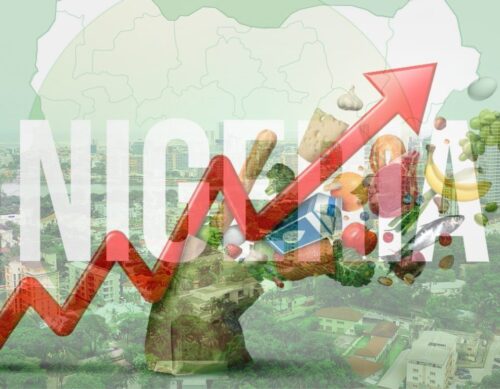
Nigeria’s inflation accelerated in March, undoing the temporary respite recorded in February, as increased spending during Eid al-Fitr and a renewed depreciation of the naira pushed consumer prices higher across multiple sectors.
According to the latest data from the National Bureau of Statistics (NBS), headline inflation rose to 24.2% in March, up from 23.18% in February. While food inflation slightly eased to 21.79%, core inflation which excludes volatile components such as food and energy rose to 24.43%, signaling deeper structural cost pressures from import dependency and utility price adjustments.
Financial analysts attribute the inflation uptick to a combination of seasonal demand, currency instability, and increased costs in sectors like telecommunications and logistics.
“Seasonal farming limitations during Ramadan, elevated consumer demand during Eid, and the naira’s depreciation all played a role in March’s price surge,” stated analysts from Meristem, a Nigerian financial services firm specializing in wealth and asset management.
The naira experienced a sharp decline between late February and early March, trading above ₦1,400 per US dollar in parallel markets. This wiped out earlier gains achieved after the Central Bank of Nigeria’s (CBN) FX reforms in the first quarter of 2024. As a result, businesses facing higher import and production costs have continued passing these expenses onto end users especially in urban areas.
Samuel Oyekanmi, an economic analyst at Norrenberger, observed that the latest inflation numbers reflect “a tug-of-war between favorable base effects from prior data revisions and persistent cost pressures tied to currency weakness and fuel prices.”
Looking ahead, analysts warn that inflation is unlikely to ease significantly in the short term. Upcoming electricity tariff adjustments and ongoing global supply chain disruptions pose additional risks.
“Trade frictions—especially between major economies like the U.S. and China could strain the availability of inputs and intensify imported inflation,” explained Olajide Oyadeyi, an economist at Econoday Inc. “This could further undermine price stability for Nigerian manufacturers heavily reliant on foreign goods and components.”
Meristem expects inflation to hover between 20–24% through mid-2025, assuming some level of stability in energy prices and a gradual pace of currency depreciation. However, the firm cautions that fresh FX volatility or global commodity price shocks could undermine this projection.
With inflationary pressures building once more and the naira under renewed strain, the Monetary Policy Committee (MPC) is expected to reassess its strategy at its upcoming meeting. Market watchers anticipate that the Central Bank of Nigeria (CBN) could either hike interest rates or introduce further liquidity-tightening measures to stabilize the currency and manage inflation expectations.


